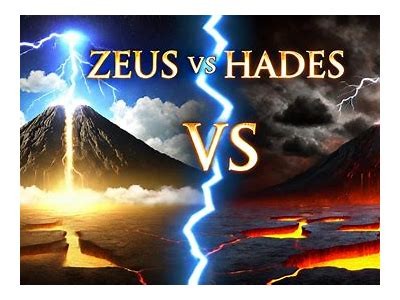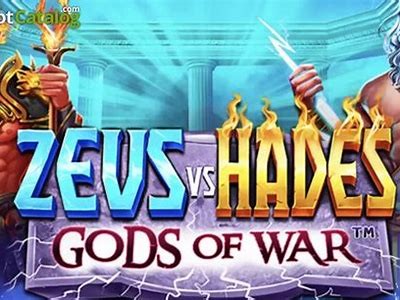Epic Battle of Zeus and Hades: A Thrilling Pragmatic Adventure in Mythology
Greek mythology is rich with tales of gods, heroes, and epic battles that resonate through history. At the center of many of these stories are Zeus, the king of the gods, and Hades, the ruler of the underworld. This article delves into a hypothetical confrontation between these two formidable figures, exploring their backgrounds, abilities, and the implications of their epic battle.

Zeus, the son of Cronus and Rhea, is often associated with thunder, lightning, and the sky. He overthrew his father to claim his place as the supreme deity on Mount Olympus. Known for his numerous affairs with goddesses and mortals alike, Zeus embodies the dual nature of benevolence and wrath. On the other hand, Hades, also a son of Cronus, governs the domain of the dead. Although often depicted as malevolent, Hades is essential for maintaining balance within the cosmos.

The contest between Zeus and Hades is not merely a clash of gods but also a battle between the realms they represent: Olympus and the Underworld. Their respective domains signify the cycle of life and death, the known and the unknown. This dichotomy sets the stage for their confrontation, presenting an ethical and existential framework that transcends mere physical combat.

Zeus wields the mighty lightning bolt, a formidable weapon that can cause destruction on an unimaginable scale. His power extends beyond sheer strength; he commands the weather, can shape-shift, and possesses keen intelligence vital for strategic decision-making. Zeus's ability to communicate with other deities signals his influence and authority over the pantheon of gods.

Hades, while often overshadowed by his brother’s grandeur, possesses unique powers that make him a formidable opponent. His control over the dead and his vast underground realm grant him the authority to summon souls and command their loyalty. Hades also possesses the Helm of Darkness, which grants him the ability to become invisible. This power of stealth adds a layer of complexity to the battle, as Hades can orchestrate ambushes and surprises.

The seeds of conflict between Zeus and Hades may stem from a series of misunderstandings and power plays among the gods. A disagreement regarding the lineage of heroes or the fate of souls may set both deities on a collision course. As tensions escalate, their followers, both mortal and divine, become embroiled in the unrest, leading to a war that transcends the divine realm. Gathering Forces
The battle would not unfold in isolation, as both gods would gather allies to bolster their ranks. Zeus may rally the Olympians and other deities, each bringing unique powers and abilities. Hades could call upon the spirits of the underworld, along with fearsome creatures like Cerberus and the Furies, placing added pressure on Zeus's coalition. The Battlefield: A Clash of Realities Olympus: The Heavenly Abode
The clash could initiate at the peak of Mount Olympus, amidst flowing rivers of nectar and flourishing flora. This radiant landscape would signify Zeus’s dominion and the order he maintains among the gods. The splendor of Olympus offers a stark contrast to the dark, desolate realm of Hades, where the outcomes of life’s choices manifest in shadows and echoes. The Underworld: A Descent Into Darkness
If the battle shifts to the Underworld, the atmosphere would be thick with unease and foreboding. The cavernous landscapes would act as a backdrop for Hades's manifestations: the rivers of Styx, the Fields of Asphodel, and Tartarus's depths. This shift highlights the psychological elements of fear, loss, and the unknown in their confrontation. Strategies of War
As the battle unfolds, Zeus might leverage his brilliant tactical mind to create weather-based strategies, summoning storms and thunderbolts in an effort to disrupt Hades’s ranks. Conversely, Hades could employ psychological warfare, using the fear of death and the past to unsettle Zeus’s followers, casting doubt and despair. Climax: The Ultimate Showdown
The climax of their conflict would punctuate with a cataclysmic showdown, where the very forces of nature seem to unite against the cosmic order. As lightning clashes with shadows, the battlefield transforms into a tapestry of brilliant light and suffocating darkness, embodying their struggle for supremacy. Resolution: The Aftermath of Battle
Regardless of the outcome, the aftermath of this epic battle would profoundly impact both Olympus and the Underworld. A truce could be brokered, recognizing the necessity of balance between life and death, establishing new roles for gods and mortals alike. Conclusion
The hypothetical conflict between Zeus and Hades serves as a profound allegory for the struggles between life and death, order and chaos. Beyond the spectacle of divine combat lies a deeper understanding of the human condition, reminding us that, while battles may rage, harmony is essential for existence. Tags






